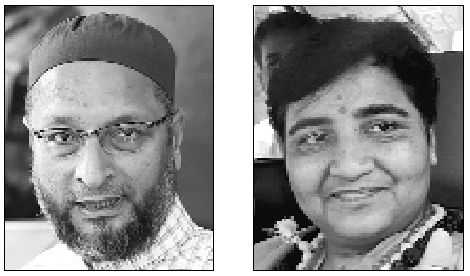
Mani Shankar Aiyar

Mani Shankar Aiyar
IT was Walter Bagehot, mid-19th century Editor of The Economist of London, who made the celebrated distinction between the “dignified” aspect of statecraft and the “efficient” part. He was drawing the distinction in the context of the role of the monarchy in England’s Parliamentary democracy. Adapted to our Republican Constitution, we might describe the ritual of swearing in MPs at the start of the new term of Parliament as the “dignified” part — which, in Bagehot’s words, “symbolises” constitutional democracy “through pomp and ceremony”. And the subsequent functioning of Parliament as the “efficient” part that deals, in Bagehot’s definition, with “running the country by passing laws and providing public services”.
Through 16 Lok Sabhas over 62 years, the swearing-in ceremony of MPs has been a solemn affair, quiet, dignified, orderly and designed to emphasise the seriousness of the occasion as each Member “solemnly swears” or “swears in the name of God” to bear “true faith and allegiance” to the Constitution. That is the very foundation of our Republic and our Democracy. To reduce such a ceremony to a competitive slogan shouting, as happened on June 18, is tantamount to not just denigrating Parliamentary decorum but to mocking the Constitution, our democracy and our republic.
It is also incompatible with the President claiming in his traditional address two days later to the joint session of the two Houses, marking “70 years of the adoption of the Indian Constitution”, that the “Constitution is paramount”. How can we trust the veracity of that affirmation when it was the backbenches of the Treasury who were at the forefront of the persistent affront to the dignity of the House as they followed the first-time terror-accused MP, Pragya Singh Thakur, in wrecking the customs, usages and prescribed practices that have nurtured our democracy despite the hapless Pro Tem Speaker’s admonition to “not add a word” to the “sanctioned text”?
Neither “Jai Shri Ram” nor “Vande Mataram” is part of the hallowed format of the oath. Yet BJP MP after BJP MP tagged on such slogans to kick-start the shouting match that turned the swearing-in ceremony into a kind of bear fight between the saffron-swathed forces of Hindutva and the upholders of the fundamental constitutional principle of secularism. It is true that in the current Lok Sabha, secularism, as hitherto understood, is championed by only a small and fractured minority of the House. But, whatever the ideological composition of the Lok Sabha, after any given election, it is the values of the Constitution that must continue to prevail. The Supreme Court has held that not even Parliament can change the basic structure of the Constitution – and secularism is very much part of its basic structure.
And it is precisely because our nationhood comprises many religions of India and accords to each equal respect that there really is no call, especially on what has thus far been a non-partisan and amicable occasion after a necessarily divisive electoral contest, to detract from the dignity of the proceedings by resorting to slogans that may have a sacred place in a House of Worship but which have contemporaneously acquired a sectarian political hue. Thus “Bharat Mata ki Jai” has been pitted by the BJP against Netaji Subhas Bose’s rousing INA call, “Jai Hind”, when, in the Freedom Movement, they complemented each other. “Har, Har Mahadev” was a battle cry that has no place in a House of Parliament that aspires to represent and reflect a composite nation. Nor, indeed, does “Allahu Akbar” — except that Asaduddin Owaisi who, in the past has taken several oaths of fealty to the Constitution without resort to any reference to his religion, was responding to the vicious barracking of him as a Muslim by the taunts of the Treasury benches. Note, however, that he was careful to add “Jai Bheem”, “Jai Meem” and “Jai Hind”.
Nor was any dignity added to Parliamentary proceedings or to the integrity of our composite nationhood by the other religion-loaded slogans that reverberated in the House: “Om Namha Shivaya”; “Guru Gorakhnath ki Jai”; “Radhey-Radhey”; “Wahe Guruji ka Khalsa, wahe Guruji ki Fateh”; “Jai Durga”; and “Ra Ram sa”. These have their place in gurdwaras, temples, mosques and private homes but are not for competitive attention-drawing in the constitutional order envisaged by Dr Ambedkar and the other founding fathers of our cherished republic.
Nor was solemnity or dignity enhanced by even secular slogan mongering: “Inquilab Zindabad”; “Joy Bangla”; or even K Subbarayan of the CPI’s contribution: “Long live secularism, Long live India”. Perhaps it was this spectacle of what sloganeering was doing to the fabric of our nationhood that led Sunny Deol to his tryst with notoriety when he promised to “withhold” (instead of “uphold”) the “sovereignty and integrity of the country”!
